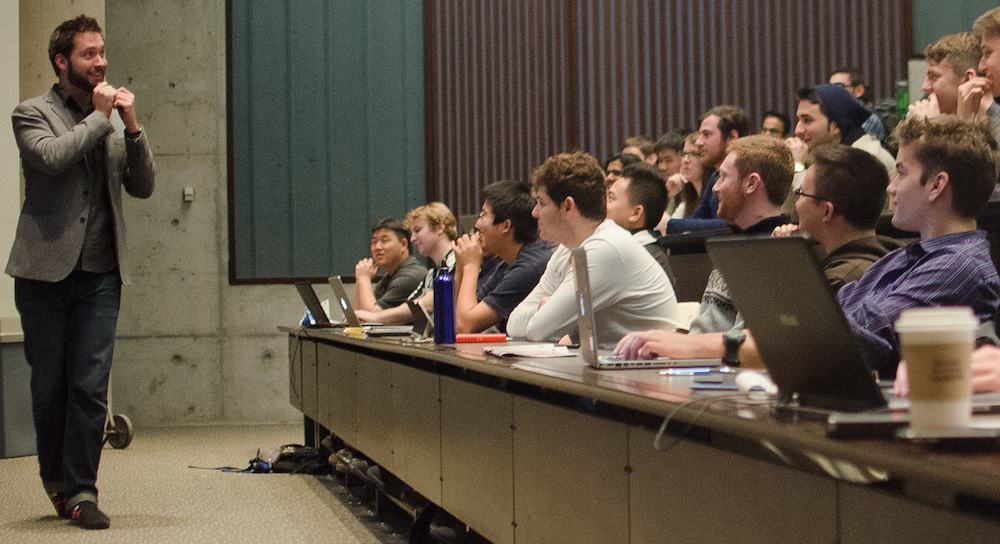Alexis Ohanian, co-founder of Reddit, held a talk and book signing at the Bahen Centre on Monday, January 13. His first book, Without Their Permission: How the 21st Century Will Be Made, draws on Ohanian’s experience to advise aspiring entrepreneurs about the value of the internet as a tool for democratically disseminating information.
The book signing began with everyone present texting his or her cell phone number to him. If, as she socialized in the auditorium, an audience member’s phone rang, she would know her book was ready to be signed and that a photo could be taken with Ohanian. The unconventional style of the book signing encapsulated Ohanian’s message.
The event was presented by The Hatchery, a group associated with the Engineering Society at U of T. The book was released in October of last year. Ohanian remains on the board at Reddit, while maintaining high positions in other start-ups. Currently, he is an investor, consultant, and the host of the television show Small Empires.
Ohanian recounted his personal experiences as an Internet entrepreneur, including his role in the founding of Reddit as a 22-year-old. He gave practical advice for how to create a start-up company. Ohanian was particularly adamant about the need to take risks and learn from failure. “I used to play video games as a kid when they were hard. One of the things I noticed is that whenever you die, you also resurrect. That is a metaphor for life,” he said.
In addition to his professional work, Ohanian is a prominent advocate of Internet freedom causes such as net neutrality and open access. He spoke about his activism in an interview after the talk.
“These days in the US, privacy is a growing concern. Net neutrality is uncertain because of the presence of Internet Service Provider (ISP) lobbyists. The Trans-Pacific Partnership (TPP) which has been pretty scary-looking. I help where I can,” explained Ohanian.
He was also a friend and business partner of Aaron Swartz, whose company Infogami merged with Reddit in 2005. Swartz committed suicide in January 2013, two days after his lawyer issued a plea bargain over controversial charges against Swartz for wire and computer fraud, amongst others. Swartz, like Ohanian, was an activist and an advocate of open access.
“We weren’t terribly close towards the end, so I can’t speak too much to what he was doing in those years. The federal government absolutely overreached; the punishment did not fit the crime. I just hope Aaron’s Law gets passed and I hope that something good can come out of this,” he concluded, referencing a proposed amendment to the Computer Fraud and Abuse Act, which would exclude terms of service violations from the act and from the statute on wire fraud.
The talk also prominently featured Ohanian giving an interview with Yuri Sagalov, a U of T engineering science graduate who dropped out of the first year of his master’s program to found the start-up company AeroFS. Ohanian is an investor in Sagalov’s company.
Correction Monday January 20, 2014: A previous version of this article incorrectly stated that Aaron Swartz had spent six months in prison. A plea bargain would have had Swartz spend six months in prison, however he did not spend any time in prison.


